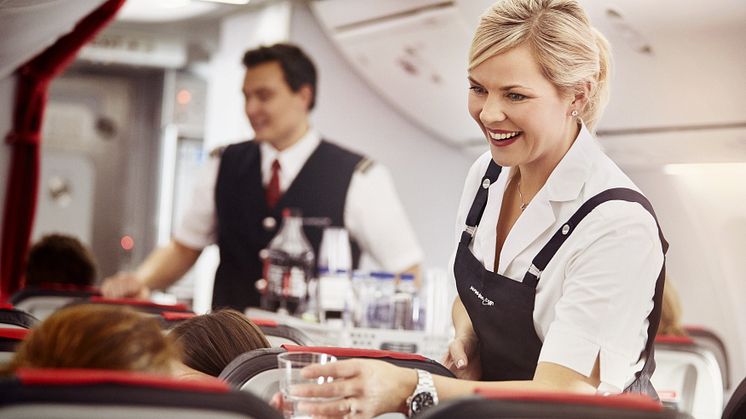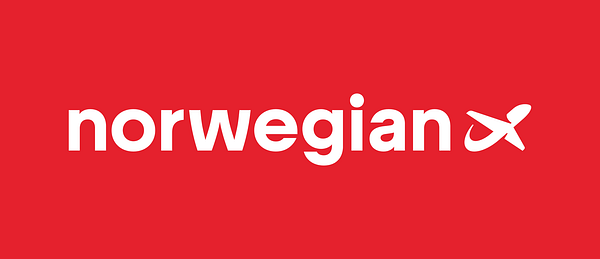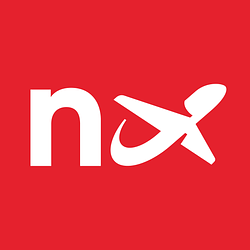
Press release -
Norwegian reports a result of 1.6 bn NOK (£149 million) in the third quarter
Norwegian (NAS) today reported a result (EBT) of 1.6 billion NOK (£149 million) for the third quarter 2018. The company continued to reduce its unit costs despite a capacity growth of 33 per cent. Going forward, the growth will abate, consequently further reducing unit cost.
The net profit for the third quarter was 1.3 billion NOK (£121 million), an improvement of 18 per cent compared to the same quarter last year. The company's unit costs excluding fuel have decreased by 10 per cent this quarter. The total revenue increased by 33 per cent to 13.4 billion NOK (£1.2 billion). In total, approximately 11 million passengers chose to travel with Norwegian in the third quarter - an increase of 11 per cent. The load factor remained high at 90.5 per cent compared to 91.7 per cent last year.
Norwegian has made significant investments in recent years, with the establishment of new bases internationally and in new markets; recruitment of several thousand employees - primarily pilots and cabin crew - the launch of many new routes and increase of frequencies on well-established routes. The strong international footprint has for instance contributed to the United States now representing the largest market after Norway in terms of total revenue.
"I am very pleased to present a solid result this quarter with a reduced unit cost despite strong growth. Going forward the growth will slow down, and we will begin to reap the large investments we have made over the years, which will benefit customers, employees and shareholders. However, there is no doubt that tough competition, high oil prices and a strong dollar will affect the entire aviation industry, making it even more important to further streamline our operations and continue to reduce costs," said CEO Bjørn Kjos of Norwegian.
A new fleet reduces environmental emissions and costs
Norwegian has one of the world's youngest and most modern aircraft fleets with an average age of 3.7 years. Thanks to the young fleet, the company has reduced its emissions per passenger by 30 per cent since 2008. It has also been named the most environmentally friendly airline on transatlantic routes by The International Council of Clean Transportation, an international and independent environmental institute.
"The report by the International Council of Clean Transportation confirms that our investment in the latest technology available on the market is the single most important environmental measure an airline can undertake. New aircraft are win-win for the environment, the passengers and the company’s costs,” Kjos continued.
During the third quarter, Norwegian has taken delivery of one brand-new Boeing 787-9 Dreamliner and four Boeing 737 MAX 8 aircraft. In 2018, Norwegian will take delivery of 11 Boeing 787-9 Dreamliners, 12 Boeing 737 MAX 8 and the two Boeing 737- 800 aircraft that have already been delivered.
For detailed information, please see pdf attached.
Topics
Categories
Norwegian in the UK and Ireland:
- Norwegian carries 5.8 million UK passengers each year from London Gatwick, Edinburgh and Manchester Airports to 50 destinations worldwide
- Norwegian is the third largest airline at London Gatwick, with 4.6 million yearly passengers, and with more than 1,000 UK-based pilots and cabin crew
- In 2014, Norwegian introduced the UK’s first low-cost, long haul flights to the U.S. - the airline now flies to 11 U.S destinations, Buenos Aires and Singapore
- In 2017, Norwegian also launched affordable transatlantic flights from Edinburgh, Belfast, Dublin, Cork and Shannon to the US East Coast, using the brand new Boeing 737 MAX aircraft
- Norwegian is the only airline to offer free inflight WiFi on UK flights to more than 30 European destinations
- The airline has one of the youngest aircraft fleets in the world with an average age of 3.7 years, including next-generation Boeing 787 Dreamliner, Boeing 737 MAX and Boeing 737-800s
- Norwegian has been voted ‘Europe’s best low-cost carrier’ by passengers for six consecutive years at SkyTrax World Airline Awards from 2013-2018, along with being awarded the ‘World's best low-cost long-haul airline’ in 2015, 2016, 2017 and 2018
- Norwegian Reward is the airline's free to join award-winning loyalty programme offering members CashPoints and Rewards that reduce the cost of Norwegian flights


